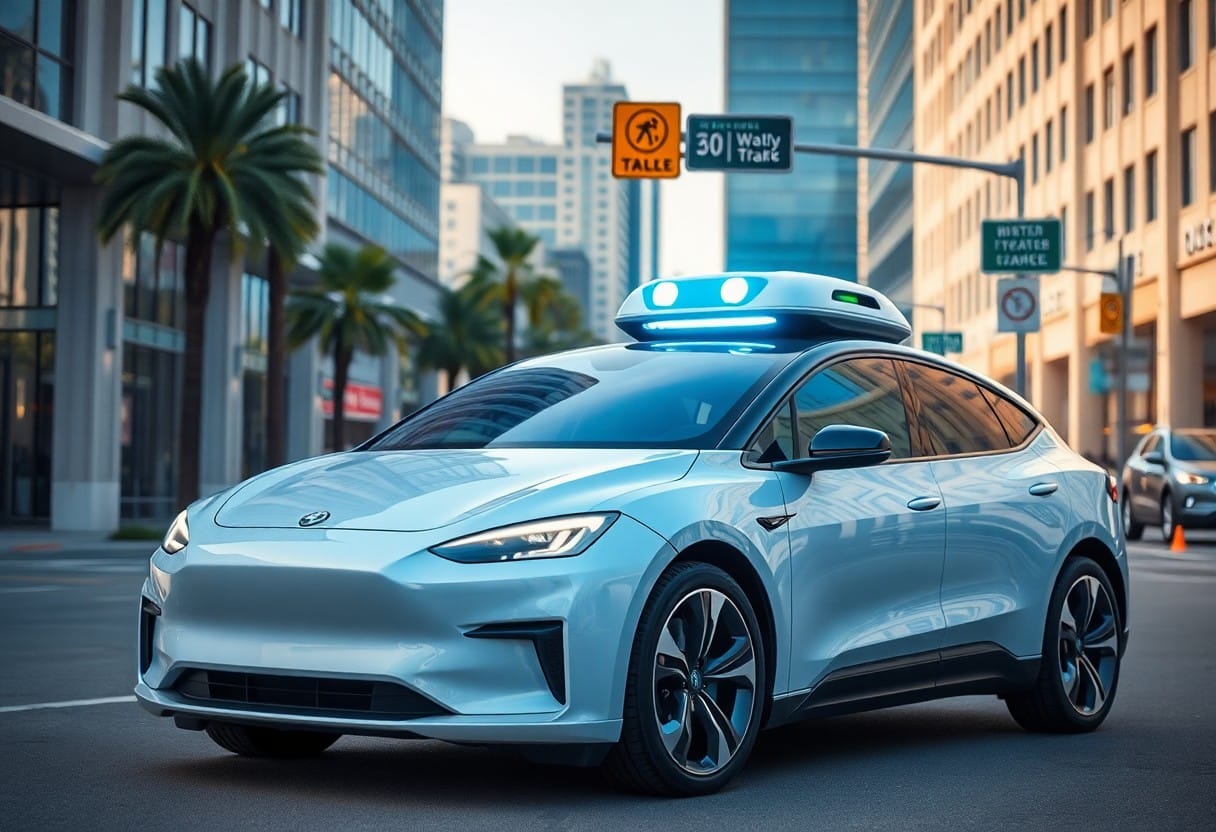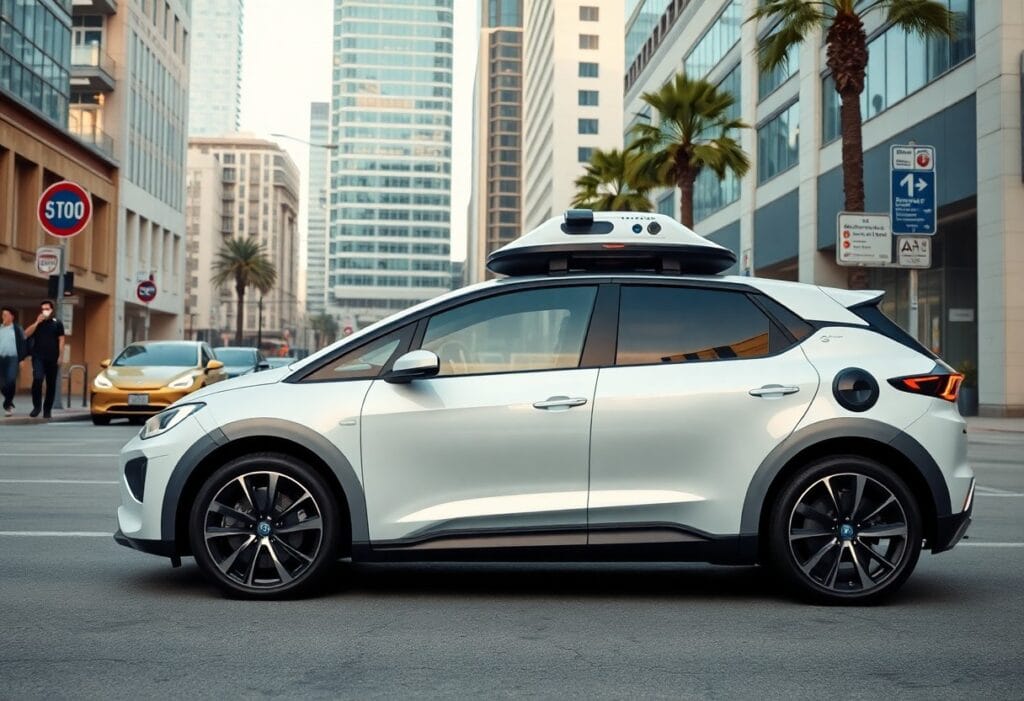There’s a rapidly evolving landscape surrounding electric and autonomous vehicles in Los Angeles that you need to be aware of. As manufacturers push the boundaries of technology, new legal challenges are arising, from regulatory compliance to liability issues. Staying informed about these emerging trends is important for you as a driver, investor, or policy-maker. Understanding how laws adapt to these innovations can help you navigate the complexities of this exciting automotive revolution.
Regulatory Framework
For electric and autonomous vehicles, the regulatory framework is continuously evolving to address the unique challenges posed by these technologies. As innovations emerge, legislators and government agencies are working to establish guidelines that ensure safety, promote innovation, and protect the interests of the public. Understanding this framework is vital for you if you are navigating the landscape of electric and autonomous vehicles in Los Angeles and beyond.
California State Regulations
By implementing comprehensive regulations for electric and autonomous vehicles, California is leading the nation in promoting sustainable transportation solutions. These regulations set standards for vehicle performance, safety, and environmental impact, which you should familiarize yourself with to ensure compliance and benefit from potential incentives.
Los Angeles Municipal Codes
An vital component of the regulatory framework, Los Angeles Municipal Codes address specific local concerns related to electric and autonomous vehicles. These codes outline rules about charging infrastructure, parking regulations, and operational requirements, directly impacting your experience as a vehicle owner or operator in the city.
Hence, understanding the Los Angeles Municipal Codes is vital for you, as compliance can affect where you charge your vehicle and how you operate it within the city. The regulations aim to promote sustainable transportation while ensuring safety for all road users, which is particularly important in a densely populated area like Los Angeles. Violations could lead to fines or penalties, making it imperative for you to stay informed and adhere to local laws as you embrace the shift towards electric and autonomous vehicles.
Liability Issues
Some emerging legal trends surrounding electric and autonomous vehicles center on liability issues, particularly in terms of accident responsibility and insurance coverage. As you navigate this evolving landscape, it’s important to understand how state laws in Los Angeles are adapting to these advancements. With self-driving technology becoming commonplace, determining liability in the event of a crash raises complex questions that require careful consideration of both manufacturers and operators of these vehicles.
Autonomous Vehicle Accidents
Among the significant challenges posed by autonomous vehicle accidents is the allocation of fault. When a self-driving car is involved in a collision, you may find yourself questioning whether the liability lies with the vehicle manufacturer, the software developer, or the vehicle owner. This ambiguity can lead to disputes over insurance claims, making it vital for you to stay informed about the evolving laws surrounding these incidents.
Insurance Requirements and Coverage
Requirements for insurance coverage related to electric and autonomous vehicles are also evolving. As a vehicle owner, you must be aware that your insurance policy may need to adapt to cover potential liabilities that arise from your vehicle’s autonomous features.
Hence, understanding your insurance requirements is vital to safeguarding against potential liabilities. Your insurance provider may offer specific plans tailored for autonomous vehicles that cover unique risks associated with self-driving technology. Additionally, be aware that coverage levels may vary; you need to verify that your policy adequately addresses incidents involving automated systems and complies with state regulations. By ensuring comprehensive coverage, you protect both yourself and other road users against possible accidents.

Infrastructure and Urban Planning
Any discussion about electric and autonomous vehicles in Los Angeles must address the implications for infrastructure and urban planning. As these vehicles become more prevalent, cities are tasked with transforming their transportation networks to support this shift, which will involve improving roadways, traffic systems, and parking spaces designed specifically for these technologies. The integration of electric and autonomous vehicles demands a comprehensive strategy to ensure safety and efficiency in urban environments, ultimately altering the landscape of mobility within the city.
Charging Station Requirements
Beside your vehicle’s technology, the availability of charging stations plays a significant role in the adoption of electric vehicles. Local regulations are evolving to mandate the installation of charging stations in new developments and public spaces. Understanding these requirements is necessary for city planners and developers to foster a more accessible infrastructure that accommodates the growing electric vehicle market.
Dedicated Lanes and Traffic Management
At the forefront of urban planning for electric and autonomous vehicles is the need for dedicated lanes and innovative traffic management systems. These elements are necessary for facilitating the safe and efficient movement of vehicles, especially as driverless technology advances. Ensuring that dedicated lanes are well-marked and properly designed helps reduce congestion while enhancing safety for both autonomous and human-driven vehicles.
It is critical to consider how dedicated lanes will improve traffic flow and minimize the risk of accidents. By implementing these lanes, cities can create a safer environment for autonomous vehicles, allowing them to operate more predictably. Moreover, a properly designed traffic management system is vital, as it can utilize real-time data to optimize traffic signals and reduce delays. Communicating these plans to the public will ensure that everyone understands their benefits, helping increase acceptance of electric and autonomous vehicles in daily travel.
Data Privacy and Cybersecurity
Now, as electric and autonomous vehicles become more prevalent in Los Angeles, the legal landscape surrounding data privacy and cybersecurity is evolving. As these vehicles collect sensitive data, it is necessary for both manufacturers and consumers to understand their rights and responsibilities in this rapidly changing environment.
Vehicle Data Collection
Around electric and autonomous vehicles, the collection of data has become a standard practice, including information on your driving habits, location, and even personal preferences. This extensive data accumulation raises important questions regarding who owns your information and how it is being utilized by manufacturers and third parties.
Consumer Protection Measures
Consumer protection measures play a vital role in safeguarding your information in connected vehicles. Policies are increasingly being implemented to ensure you are informed about data collection practices and have control over your personal data.
Cybersecurity is a significant aspect of consumer protection, providing you with assurances that your data remains safe and secure against unauthorized access. With the rise of connected vehicles, threats such as hacking and data breaches have become more prominent, raising the stakes for manufacturers and consumers alike. To mitigate these risks, it’s necessary that you stay informed about security practices and advocate for transparency in data usage. This way, you can make educated decisions regarding your vehicle’s technology and ensure that your personal information is appropriately protected.
Environmental Compliance
Keep in mind that environmental compliance is imperative for the electric and autonomous vehicle sectors in Los Angeles. With rising concerns over climate change, businesses are required to adhere to various regulations and policies aimed at reducing emissions and promoting sustainability. Understanding these legal trends is important as they shape the industry landscape and can impact your operations significantly.
Zero-Emission Requirements
After the implementation of California’s stringent zero-emission vehicle (ZEV) regulations, manufacturers must allocate a substantial portion of their production to zero-emission models. This means that as a business, you need to align your strategies with state mandates, ensuring compliance and meeting market expectations for cleaner transportation options.
Sustainability Standards
One major aspect of environmental regulations is the enforcement of sustainability standards that govern the lifecycle of electric and autonomous vehicles. Incorporating these standards not only reduces your carbon footprint but also enhances your brand reputation among environmentally-conscious consumers.
ZeroEmission standards are designed to foster a sustainable future, but they also come with strict compliance mandates. These regulations cover everything from the sourcing of materials to the disposal of batteries, and it’s important for you to integrate these standards into your business model. Not following these guidelines can lead to severe penalties and a loss of consumer trust. By adopting advanced manufacturing practices and eco-friendly materials, you can position your business at the forefront of innovation while mitigating risks associated with non-compliance. Staying informed and proactive is key to making your operations sustainable and legally compliant.
Commercial Applications
All industries are starting to see the potential of electric and autonomous vehicles (AVs) as they transform the landscape of commercial transportation. In particular, businesses are exploring these innovations to increase efficiency and reduce operational costs, thereby enhancing overall productivity.
Rideshare and Delivery Services
Across Los Angeles, rideshare and delivery services are rapidly adapting to include electric and autonomous vehicles, which could revolutionize how you think about transportation. The convenience of these services may increase, allowing you to enjoy faster, safer, and more sustainable options while boosting company profits.
Fleet Management Regulations
Fleet management regulations are evolving alongside the rise of electric and autonomous vehicles, requiring you to stay informed about compliance and safety standards. This shift aims to enhance the safety and efficiency of your fleet operations.
Delivery services utilizing electric and autonomous vehicles face specific compliance challenges, as regulatory bodies assess the safety measures necessary for fleet operational integrity. Innovations in technology are streamlining routes and minimizing environmental impact, but you must be aware of the legal ramifications associated with fleet management regulations. Keeping up with updates will help mitigate potential liabilities and ensure your operations align with evolving policies, allowing you to leverage financial incentives for more sustainable choices.
Final Words
As a reminder, staying informed about the emerging legal trends surrounding electric and autonomous vehicles in Los Angeles is vital for you as a stakeholder in this evolving industry. Understanding the evolving regulations, liability issues, and compliance requirements will help you navigate the complexities and position yourself for success. By keeping abreast of these developments, you can make informed decisions that align with both current laws and future innovations in transportation technology.









